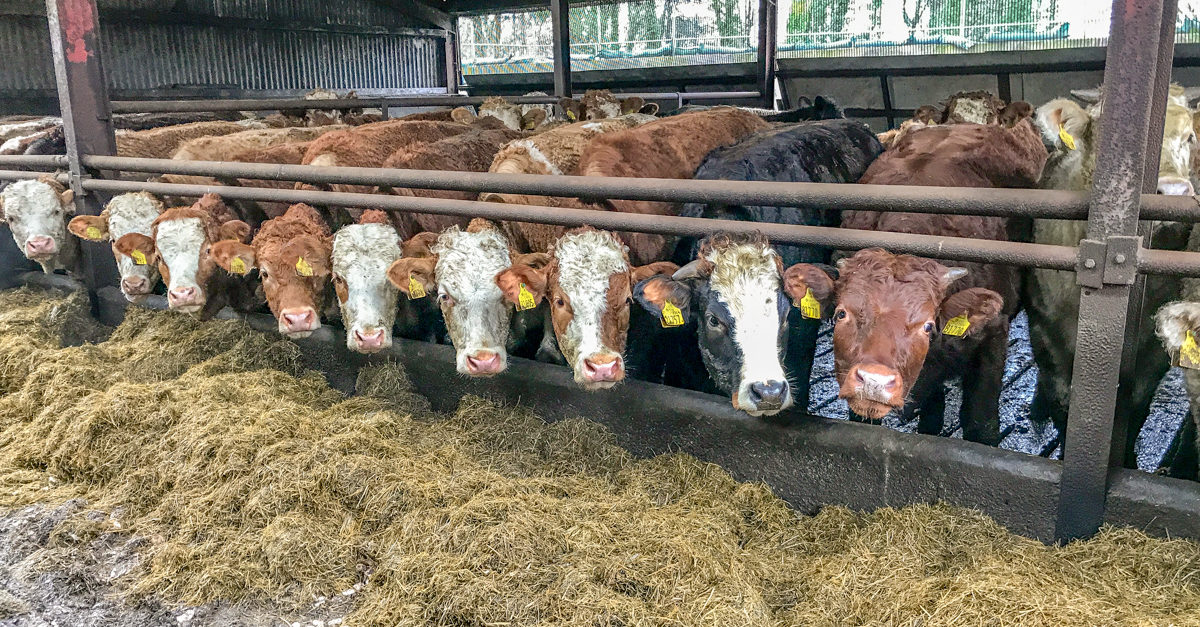Lanark-based Simmental cattle breeder and former auctioneer, David Lowry, is of the view that beef markets will start to strengthen during the period ahead.
Lowry, who judged the cattle classes at this year’s Omagh Show, told Agriland: “We may not get back up to £7/kg but the reality is that the UK and the rest of the world is short of beef at the present time.
The Scottish breeder noted that consumers have already shown that they are prepared to pay realistic prices for beef, provided the quality of the meat is is good.
He said: “There has been a haemorrhaging of suckler cow numbers over recent years. This is because farmers were not getting prices for stock that covered their costs.
“And, as a consequence, they either cut cow numbers or got out of sucklers altogether. Thankfully, circumstances are changing, which can allow farmers to look again at suckler production with a degree of confidence.”
Lowry is very aware of the growing focus that has been placed on beef from the dairy herd.
“But quality beef will still be required from the suckler sector. And the need to maintain cow numbers in this context is obvious,” Lowry added
Irrespective of what happens in the future, Lowry feels that the days of beef farmers receiving rock-bottom prices for their cattle are over.
He said: “Consumers realise the costs required at farm level in making quality beef available. And this factor alone should help to bolster UK markets during the period ahead.”
Food inflation
Lowry was speaking against the backdrop of food inflation figures starting to notably strengthen once again.
According to the UK’s Office of National Statistics, the 12-month inflation rate for food and non-alcoholic beverages was 4.5% in June 2025.
This was the third consecutive increase in the rate. It is the highest recorded since February 2024, but is well below the peak seen in early 2023.
There were small upward effects to the change in the rate from three of the eleven food and non-alcoholic beverages classes: namely bread and cereals (particularly cakes), meat, and milk, cheese and eggs (mainly cheddar cheese).
These were partially offset by small downward effects from the sugar, jam, syrups, chocolate and confectionery class (from chocolate products), and mineral waters, soft drinks and juices (from fruit juice).
The official figures also confirm that the UK’s Consumer Prices Index (CPI) rose by 3.6% in the 12 months to June 2025, up from 3.4% in the 12 months to May.
On a monthly basis, CPI rose by 0.3% in June 2025, compared with a rise of 0.1% in June 2024.

